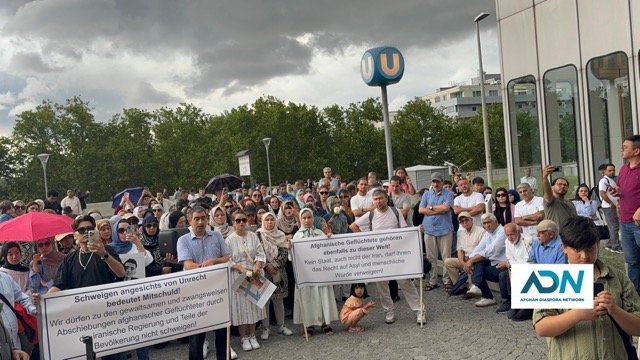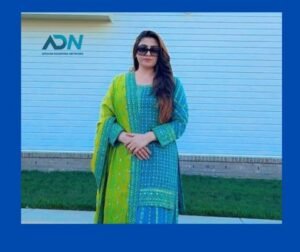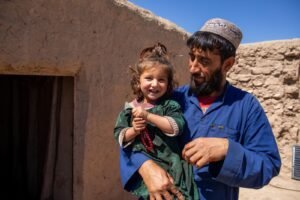Afghan Diaspora in Vienna Rallies Against Deportations from Iran

Members of the Afghan diaspora in Austria demonstrate against the forced return of Afghan refugees from Iran, in front of the UN building in Vienna on 24 July. Photo: @Ali Ahmad for ADN
ADN
On a grey summer afternoon in Vienna, the usually quiet spot in front of the United Nations Headquarters echoed with powerful voices and urgent pleas. Around 200 members of the Afghan diaspora—men, women, students, elders, and children—gathered for a protest fueled by deep anger and grief.
Their demand was simple but crucial: end the inhumane deportation of Afghan refugees from Iran.
Organized by a coalition of Afghan diaspora organizations including the Afghanistan Culture and Integration Association (AKIS), New Beginning (Neuer Start), Al-Taqwa Cultural Center, and the Afghan Youth Association, the demonstration marked a rare moment of unity among Afghan ethnic communities in Austria. It also sent a strong message to both Iran and the international community: enough is enough.
“The mistreatment of Afghan refugees is not just a violation of human dignity,” said Zarif Safi, one of the demonstrators. “It is a violation of international law, and we are here to raise our voice for justice.”
Their outrage is backed by urgent facts. According to the UN Refugee Agency (UNHCR), over 1.4 million Afghans have returned—or been forced to return—to Afghanistan in 2025, including over 1 million from Iran. On July first alone, 43,000 people crossed the border from Iran into Afghanistan—nearly nine times the daily average recorded earlier this year.
“Afghan refugees are part of this world”
Speakers at the protest called not only for accountability from Iran but also for broader global responsibility. A sign in German held by several protesters read:
„Die internationale Gemeinschaft darf gegenüber diesem Unrecht nicht die Augen verschließen.“
(“The international community must not close its eyes to this injustice.”)
Another sign read:
„Die Beleidigung, Erniedrigung und gewaltsame Abschiebung afghanischer Geflüchteter durch die iranische Regierung müssen ernsthaft verfolgt und verurteilt werden.“
(“The insult, humiliation, and violent deportation of Afghan refugees by the Iranian government must be seriously investigated and condemned.”)
Another sign read:
„Afghanische Geflüchtete gehören ebenfalls zu dieser Welt. Schweigen angesichts von Unrecht bedeutet Mitschuld.“
(“Afghan refugees are also part of this world. Silence in the face of injustice means complicity.”)
Wasil Faizi, an Afghan student at the University of Vienna, addressed the crowd in German. “Afghan refugees have lived in Iran for over four decades. They fled war, persecution, and poverty. They helped build Iranian society—its roads, farms, and homes. Yet they were never treated as equals. They were exploited,” Faizi said.
Faizi emphasized that Afghan refugees are fleeing not only a failed state but a failed international system. He also criticized the silence and complicity of European governments like Germany and Austria, who are also preparing deportations of Afghan refugees.
“This is a shameless lie,” he said. “Afghanistan under Taliban rule is an open-air prison. Women are excluded from education, work, and public life. The healthcare system, education, and economy—everything has collapsed.”
Safi described the cruelty Afghan refugees face in Iran and Pakistan: “They are deported by force. Their property is confiscated. Landlords refuse to return rent money. Iranian authorities tell Afghans to hire lawyers to reclaim money—once they’re already back in Afghanistan. That’s not justice. That’s mockery.”
Safi called on the international community to act: “There is no money in Afghanistan. The economy has collapsed. Yet we are seeing one of the largest mass returns of refugees in recent years. This kind of return is almost unprecedented and requires emergency international support.”
Women Lead the Call for Justice
Almost half of the protestors were women—a rare sight in Afghan diaspora events of this scale. Nafisa Akbari, director of the Afghan Youth Association, spoke of both personal and collective pain. Her own uncle was recently deported.
“From moral, humane, and Islamic perspectives, the mistreatment of Afghan refugees by Iran is condemnable,” Akbari said. “The lack of compassion shown by the Iranian people toward Afghans will not be forgotten.”
She emphasized that Afghan women and children are often the most vulnerable, and their mistreatment constitutes a moral crime. Her words echoed one of the core declarations shared at the protest:
“Violence, mistreatment, humiliation, and harassment of Afghan women and children are moral crimes that violate international obligations.”
Akbari continued:
“We demand an immediate end to inhumane treatment and a shift toward a respectful, lawful, and dignified approach.”
A Call to the United Nations
The protest in Vienna was held strategically in front of the UN headquarters. Organizers hoped it would serve as a wake-up call to international institutions.
“The alarming silence of the international community and the indifference of Iranian and Afghan authorities must end—we call for clear and responsible action,” said one speaker, quoting directly from the Afghan diaspora’s joint declaration.
Another powerful line from the declaration warned against the destruction of centuries of shared identity:
“No political decision should destroy the centuries-old human and cultural bond between Afghans and Iranians through violence or humiliation.”
As UNHCR struggles to raise funds to support the growing number of Afghan returnees, the voices from Vienna underscore a simple truth: this is not just a political issue—it is a humanitarian emergency.
And until Afghan refugees are treated with dignity, the diaspora promises not to stay silent.










